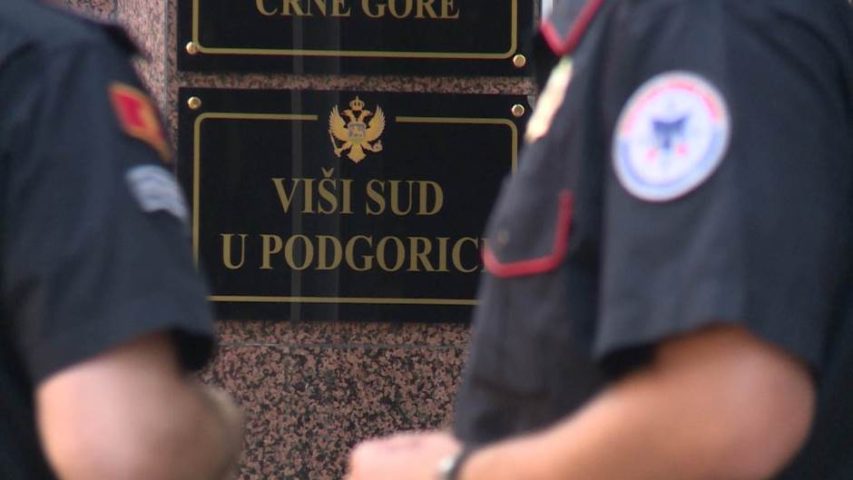
WAR CRIME TRIAL POSTPONED FOR THE SECOND TIME
07/09/2022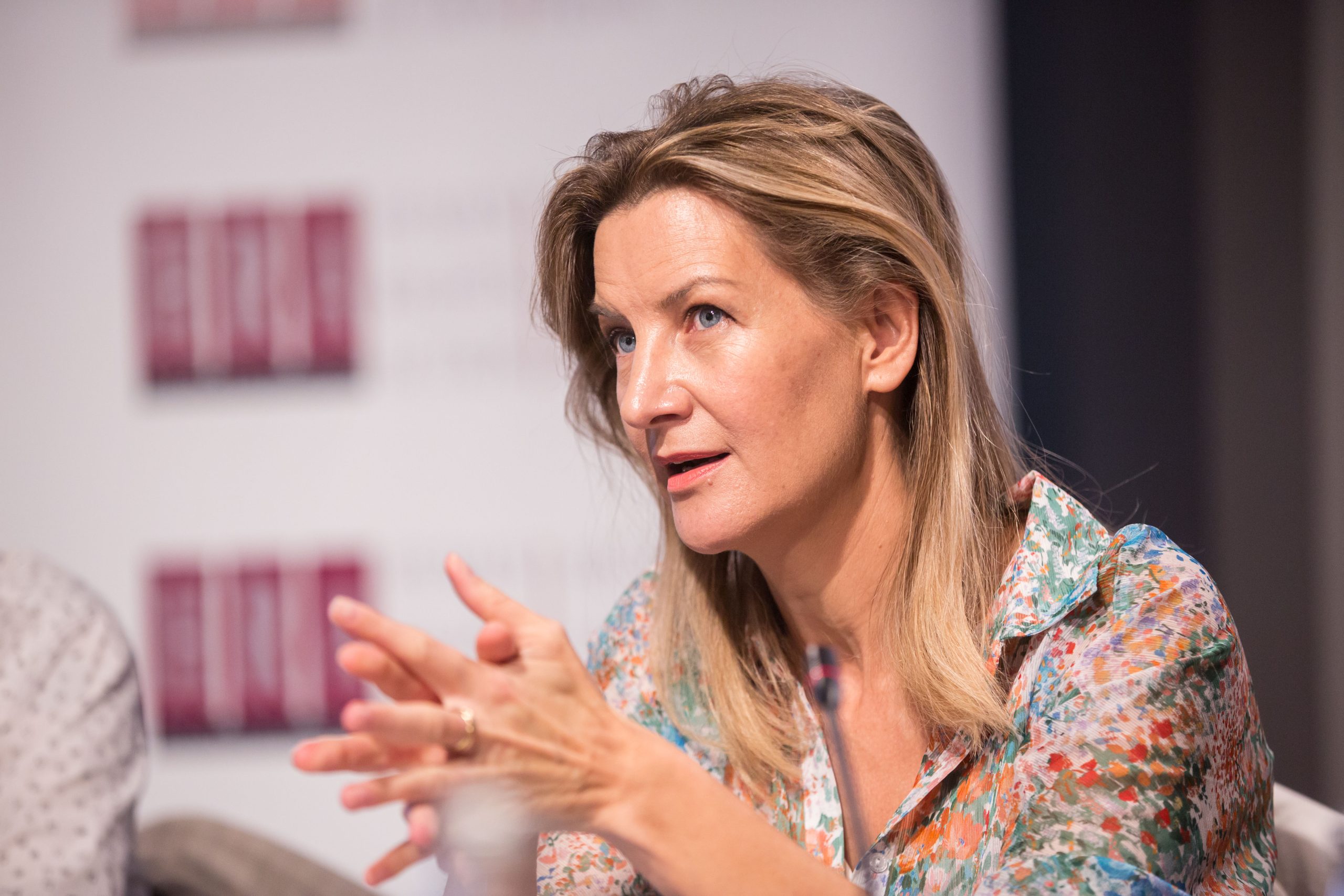
REACTION OF THE ORGANISATION HUMAN RIGHTS ACTION TO THE ANNOUNCEMENT OF THE ASSOCIATION OF JUDGES: COMMENTING ON FIRST-INSTANCE JUDGMENTS AND OTHER DECISIONS OF JUDICIAL AUTHORITIES IS A HUMAN RIGHT, NOT AN “EXTREMELY NEGATIVE PRACTICE”
18/09/2022POLITICIANS SHOULD BE PUNISHED FOR HATE SPEECH
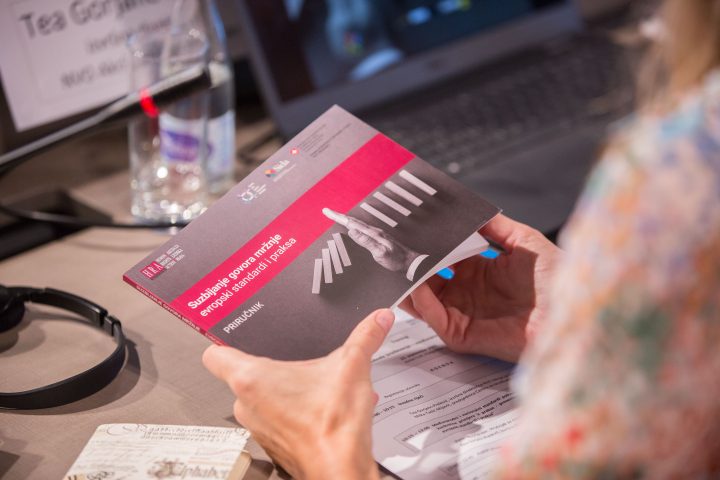
At the seminar entitled “Hate Speech and Freedom of Expression – International Standards and Practice” and organised by the organisation Human Rights Action (HRA), it was concluded that hate speech must be suppressed most of all when it comes from high-level state officials, i.e. those that are most able to influence society.
The HRA manual “Combating of Hate Speech – European Standards and Practice”, which also presents an overview of practice in our country, states that, to date, Montenegro has had only 11 criminal judgments related to hate speech.
The Director of HRA, Tea Gorjanc Prelević, pointed out that without an independent judiciary there is no freedom of expression, that all cases of hate speech must be prosecuted, and that hate speech coming from politicians must be punished more severely: “Freedom of speech has turned into hate speech”.
Director of the Centre for Investigative Journalism, Milka Tadić Mijović, assessed that a trend of increasing intolerance and hate speech is present in the entire region, and that hate speech often comes from the highest-level state officials and organisations: “Our judiciary has not yet found a way to combat this dangerous phenomenon”.
She reminded that hate speech had cost us all dearly in the 1990s, and that we must never allow a thing like that to happen again.
Council of Europe media expert Peter Norlander pointed out that in recent years there has been an explosion of hate speech everywhere, especially on the Internet, and that freedom of speech is often abused by the use of nationalist and offensive terms.
At the training, which was held for representatives of the police, the prosecution and the judiciary, he explained the practice of the European Court of Human Rights in Strasbourg related to judgments issued in cases of hate speech.
He pointed out that a distinction must be made between a strong public criticism, which is allowed, especially in relation to government representatives, and hate speech.
“The court in Strasbourg used to be much more tolerant when it comes to freedom of speech than it is now”, concluded the expert of the Council of Europe.
Director of the LGBT forum Progress, John M. Barac, pointed out that a fine of 250 EUR is not an adequate response to hate speech, and that it does not solve the problem.
“As long as MPs are spreading hate speech without suffering any consequences, this problem cannot be viewed as solved,” he concluded.
The Director of Human Rights Action added that criminal procedure should not be avoided, especially when it comes to high-level officials, noting that – based on the current practice – almost anything ends up being classified as misdemeanour.
“There is a lack of distinction between a misdemeanour and a criminal offence… The Law on Public Order and Peace does allow sanctions that are contrary to the standards of the court in Strasbourg”, concluded the director of the Human Rights Action.
The above position was supported also by the president of the Misdemeanour Court in Bijelo Polje, Alija Beganović, who pointed out that “the boundary between a criminal offence and a misdemeanour in cases of hate speech is problematic, because it is not decisively defined in the law either”. He also pointed out that “no hate speech should remain unprocessed”.
The judge of the Higher Misdemeanour Court in Podgorica, Larisa Begović, said that the Law on Public Order and Peace also prescribes prison sentences, and that she believes that sanctions should be increased and the powers of the misdemeanour court expanded: “It is necessary to adopt the standards and practice of the court in Strasbourg on a daily basis”.
Begović also pointed out that an unjustifiably small number of cases were processed under the Law on Prohibition of Discrimination, which prescribes hate speech as a separate offence. She also presented statistical data showing that recently there has been an increase in discrimination based on nationality.
Her colleague from the Basic State Prosecutor’s Office in Bijelo Polje, Katarina Kljajević, said that they often lack grounds to initiate criminal proceedings, because the jurisdiction for the criminal offence of inciting national, racial or religious hatred lies with the higher state prosecutor’s office. She also pointed out that some criminal offences “overlap”, and that “the sanctions for hate speech must certainly be harsh and serve as a deterrent”. She also indicated that, should a misdemeanour judge assess that the qualification of the offence is not appropriate, s/he can demand the prosecutor to reconsider the case and change the qualification.
President of the Misdemeanour Court in Podgorica, Nada Bjeković, pointed out that the state prosecutors “should take a more serious look, at the very beginning, at whether they are dealing with a criminal act”. She said that, in cases in which parties are brought to court, criminal offences are often qualified as misdemeanours.
During the discussion, it was also heard that it is inappropriate for the prosecutor to decide over the phone whether elements of a criminal offence are present or not, without inspecting the case file and without hearing the defendant, and that this practice should change. It was also pointed out that it is necessary for police reports to be submitted by lawyers who are specially trained to recognise hate speech.
The Human Rights Action has organised the above seminar within the project “Suppression of Hate Speech – European Standards and Practice” financed by the Embassy of the Swiss Confederation in Belgrade and the project “Through Education against Hate Speech”, with the support of the European Union, through the Centre for Investigative Journalism of Montenegro (CIN – CG) and its partners.
- Tea Gorjanc Prelević, Executive Director of the Human Rights Action
- Piter Norlander, Council of Europe media expert
- Milka Tadić Mijović, Director of the Centre for Investigative Journalism
- Alija Beganović, President of the Misdemeanour Court in Bijelo Polje
- Larisa Begović, Judge of the Higher Misdemeanour Court in Podgorica
- Dina Knežević, Chief Adviser of the Ombudsman in the Sector for Protection against Discrimination
- Maja Knežević, prosecutor in the Basic State Prosecutor’s Office in Podgorica
- Piter Norlander, Council of Europe media expert
- Ivana Dragutinović, adviser in the Department for Misdemeanors in Bar and Milena Petković, adviser in the Department for Misdemeanors in Bar (from left to right)
- Katarina Kljajević, head of the Basic State Prosecutor’s Office in Bijelo Polje, and Danilo Mrdak, prosecutor in ODT in Bijelo Polje
- Džon M. Barac, Director of the LGBT forum Progress
- Maja Šćepanović, head of the Basic State Prosecutor’s Office in Kolašin; Srna Pejović, adviser in ODT in PG, and Elma Kožar, adviser in ODT in PG (from left to right)
- Larisa Begović, judge of the High Court for Misdemeanors in Podgorica (left) and Nada Bjeković, president of the Court for Misdemeanors in Podgorica (right)
- Dragana Tomić, Senior Police Inspector Class I in the Department for Support to Police Organizational Units, Improvement of Police Work and Analytics and Mihailo Kuč, Officer of the Regional Security Center “Centar”, OB Podgorica
- Alija Beganović, President of the Misdemeanour Court in Bijelo Polje


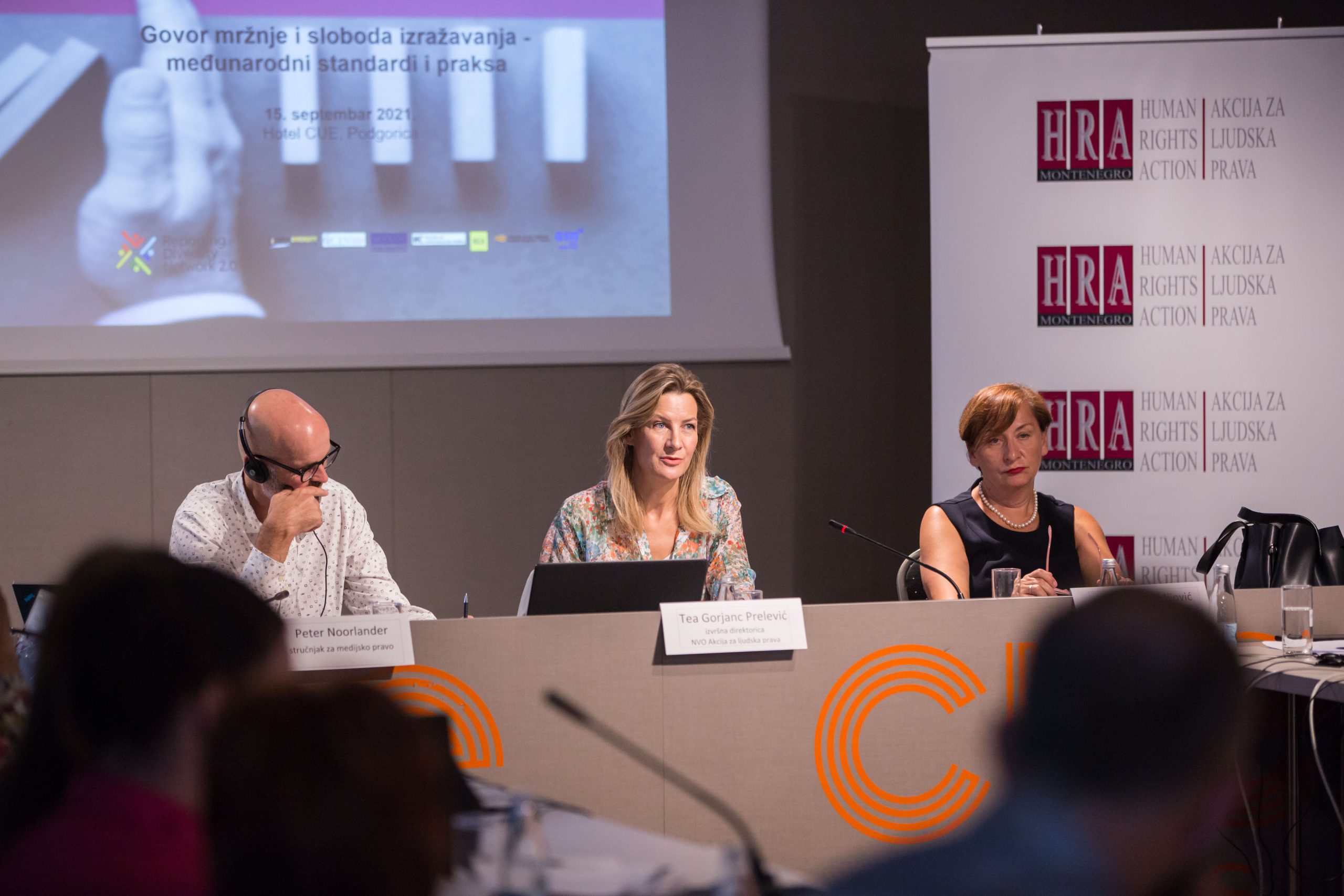
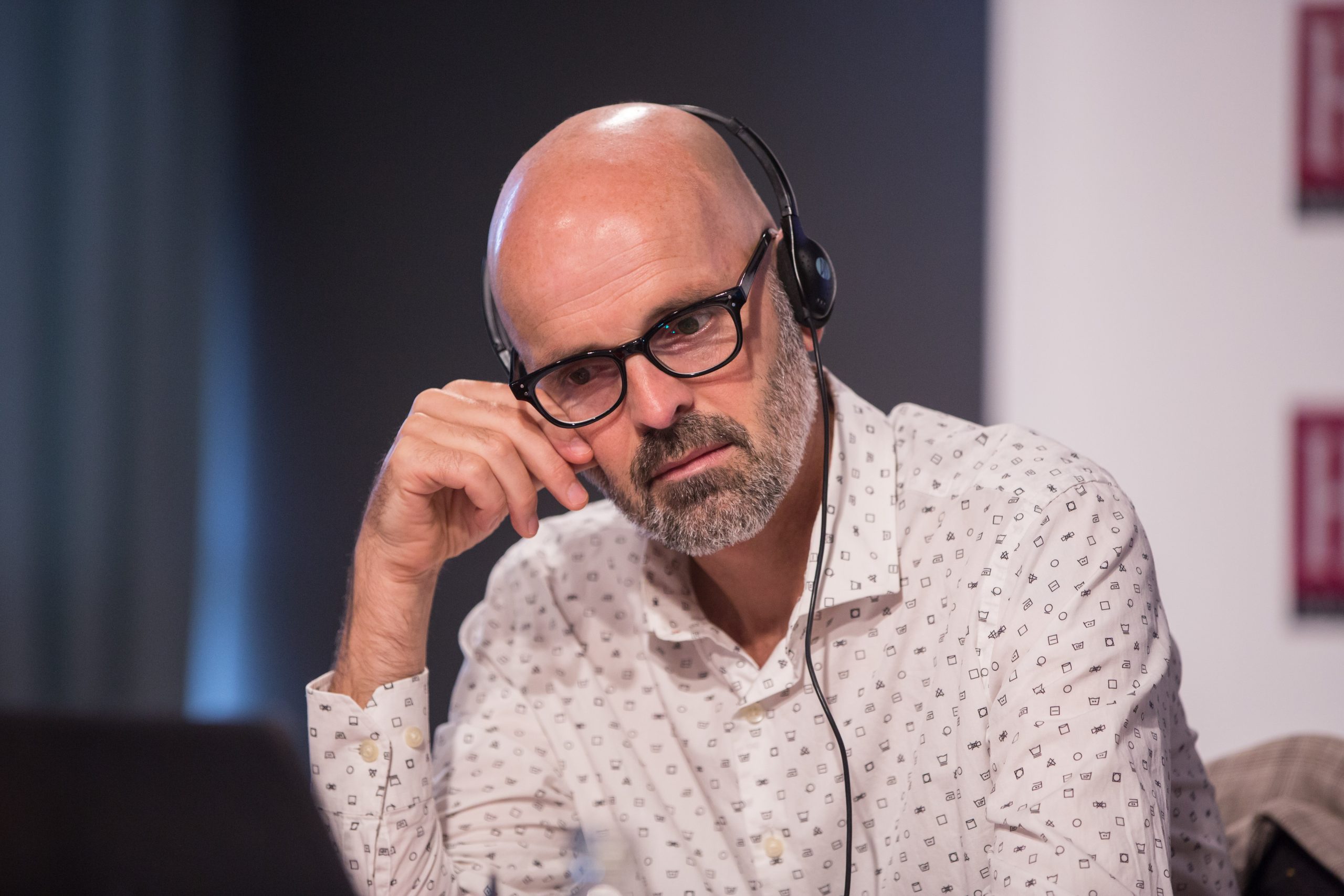
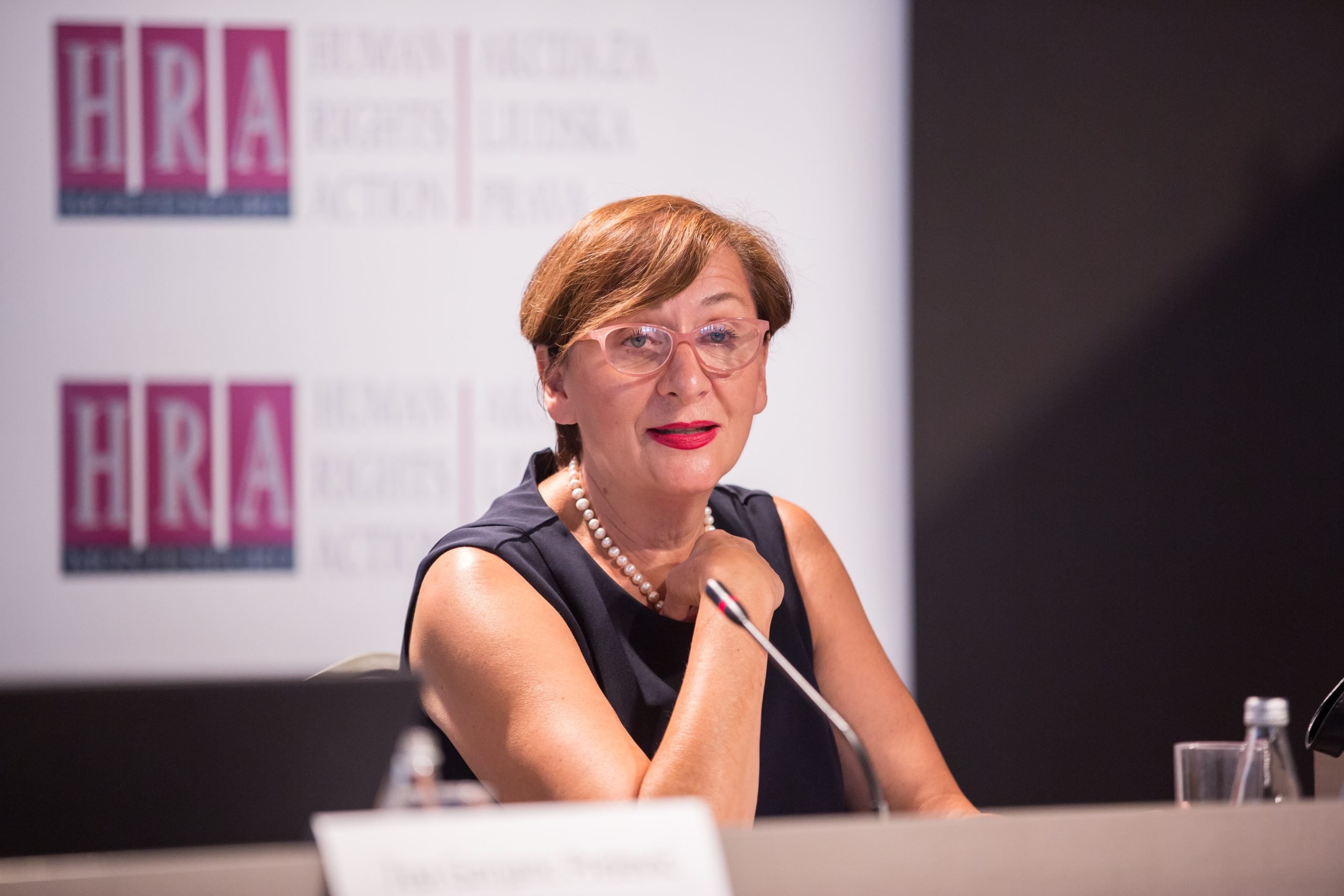
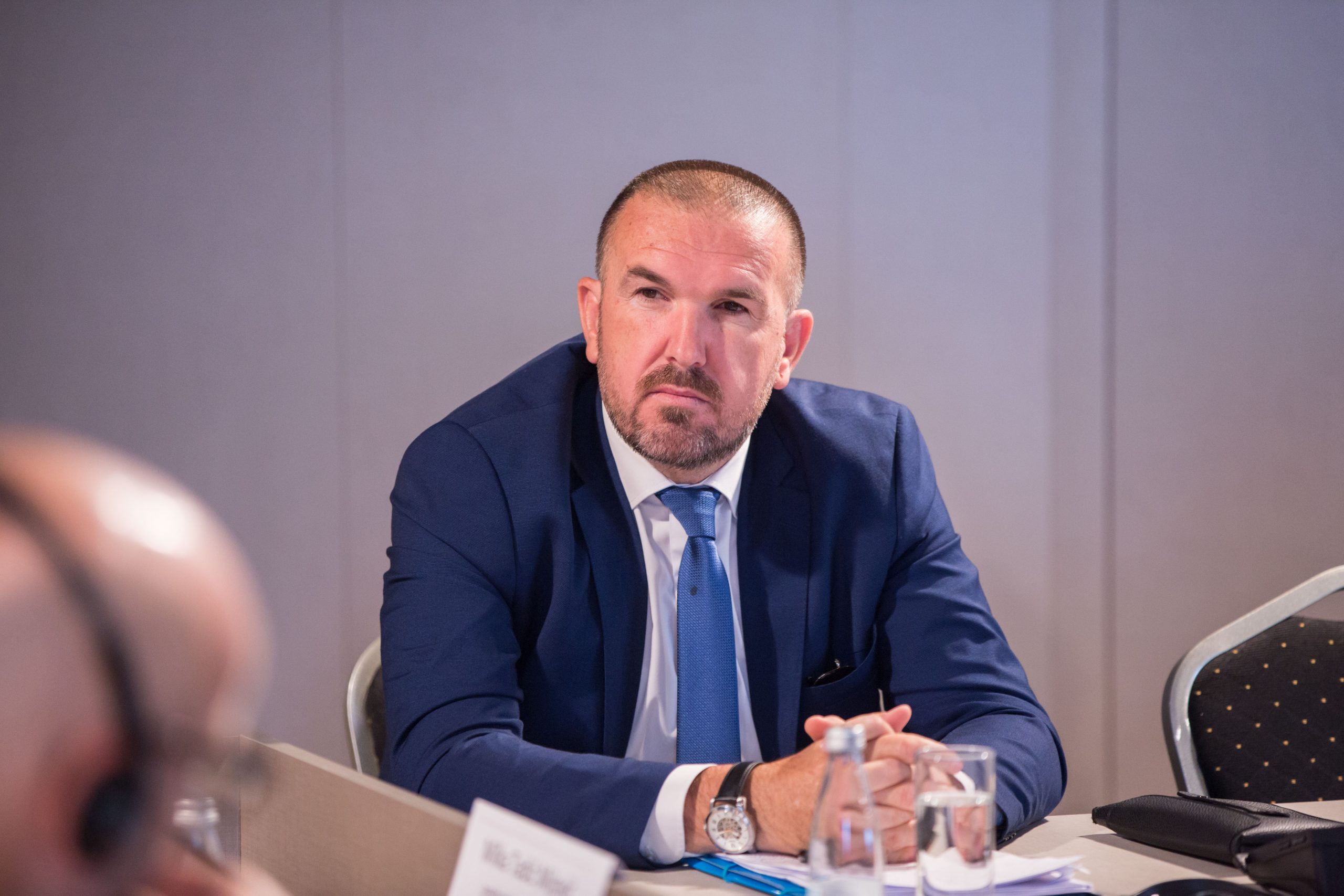
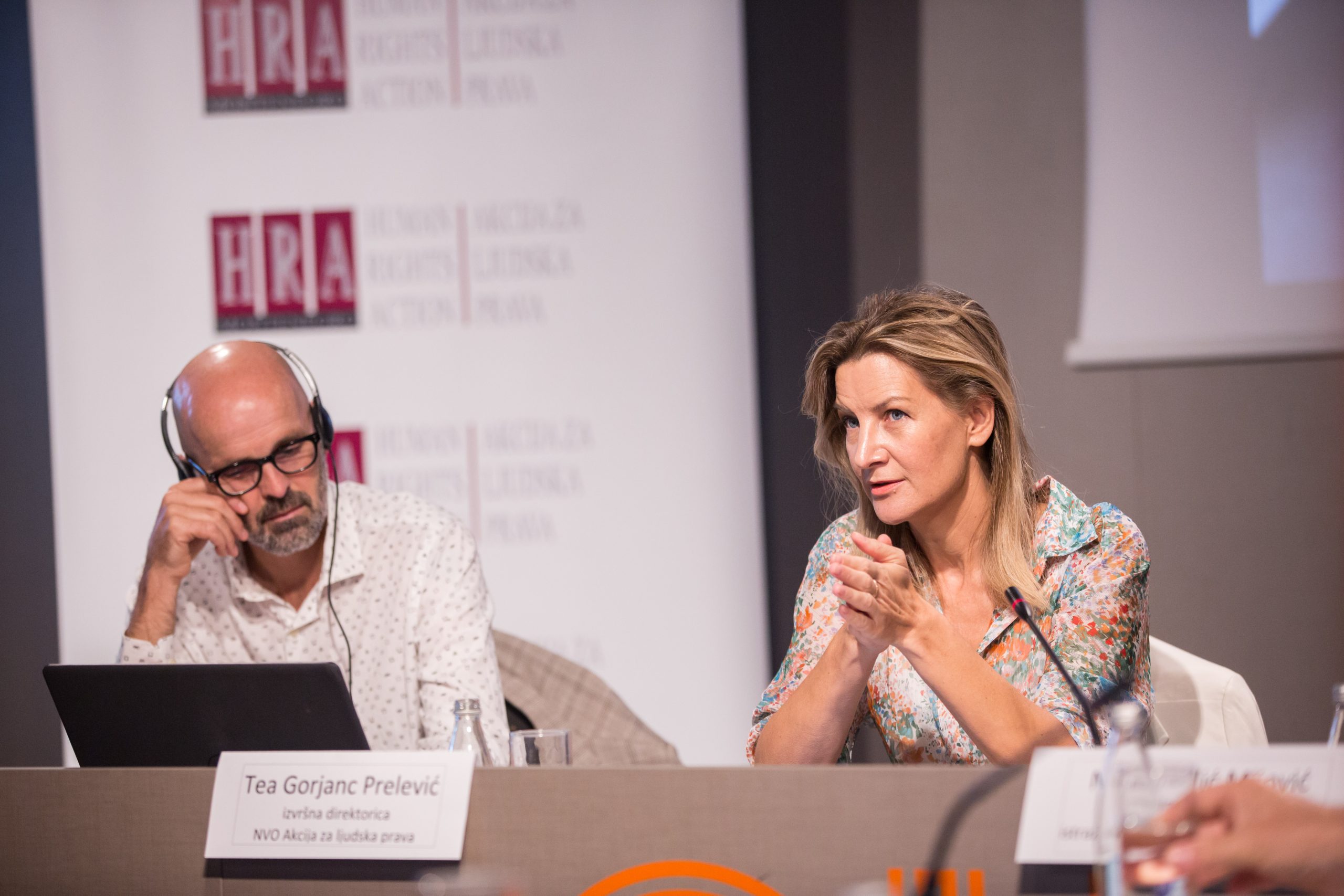
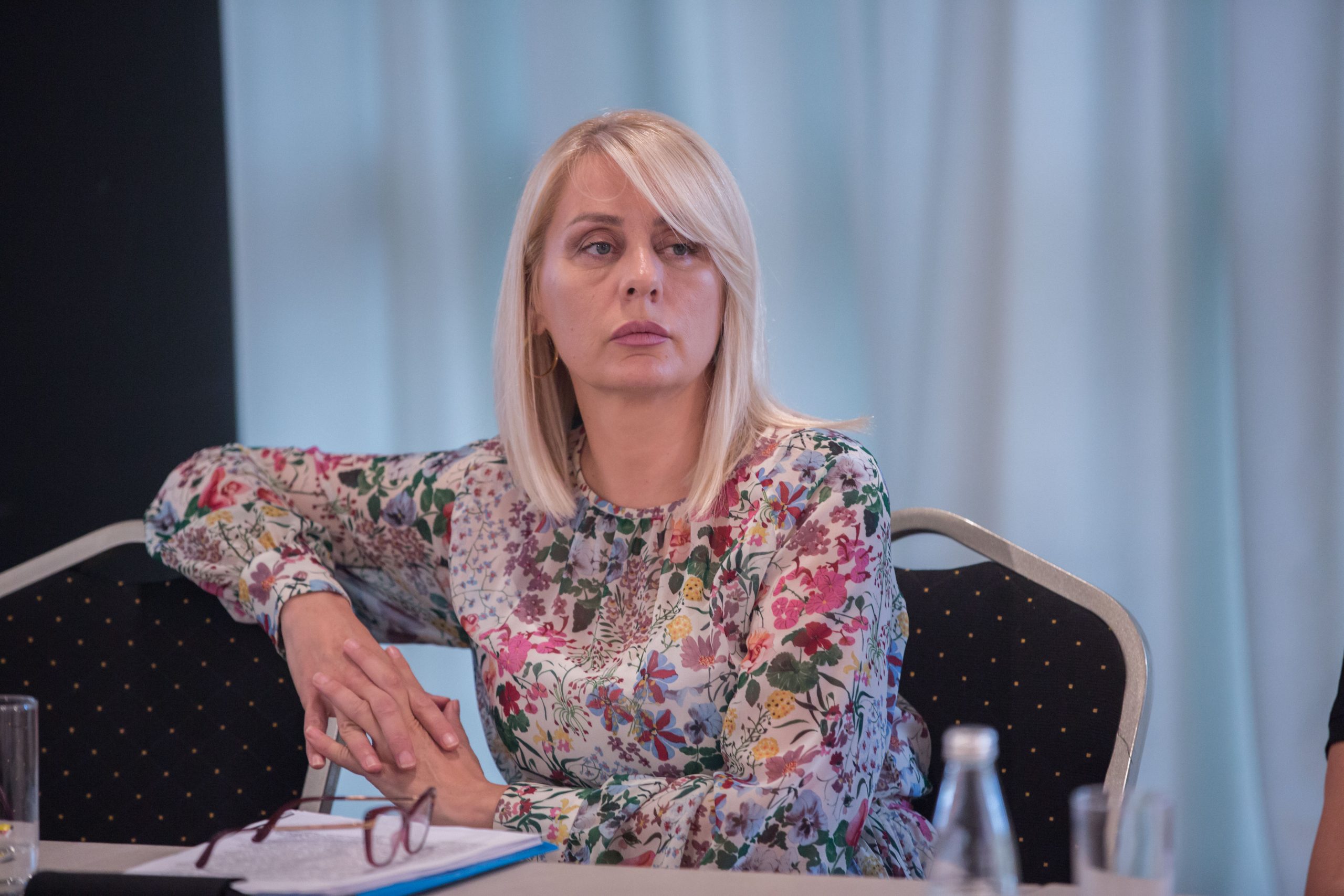
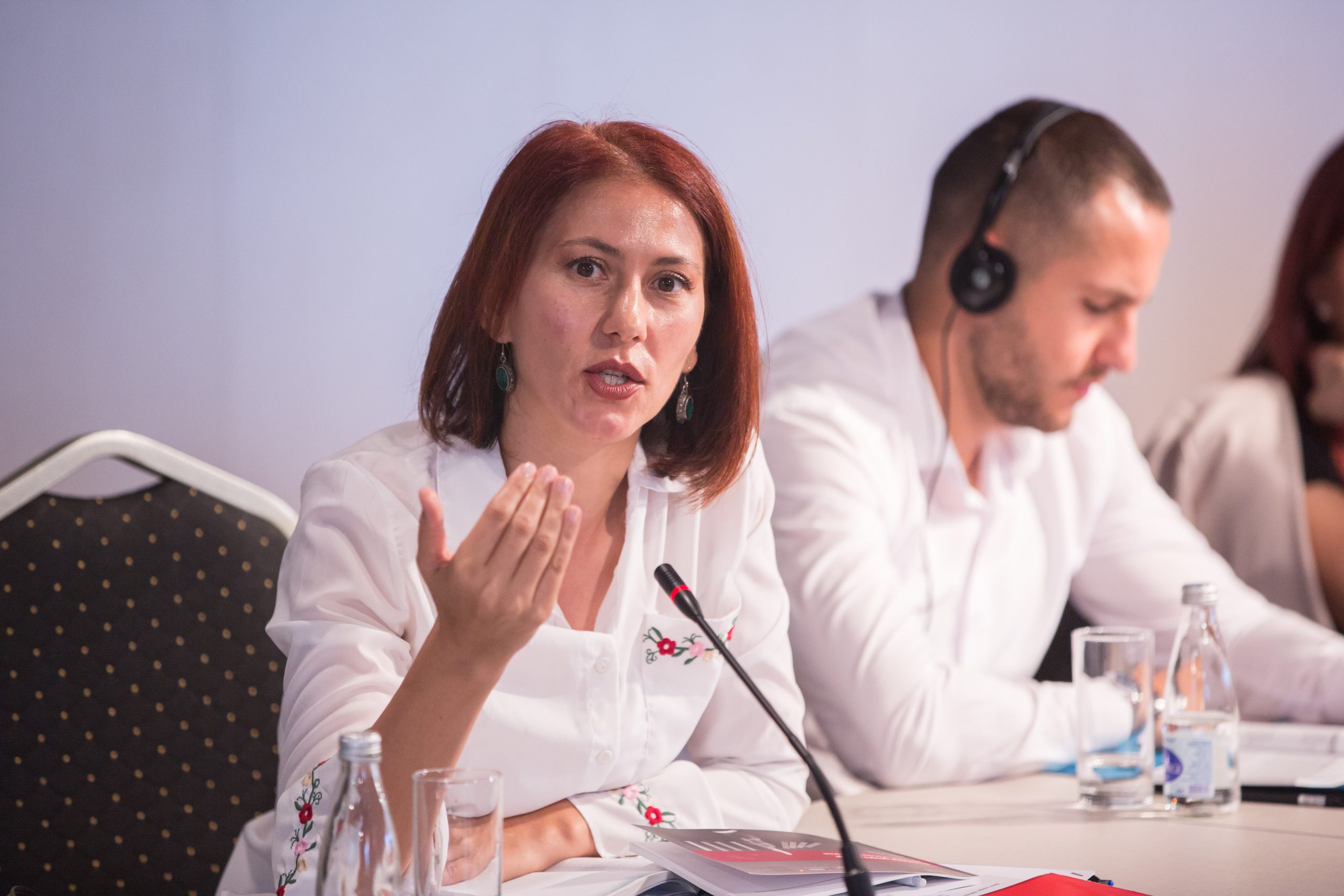
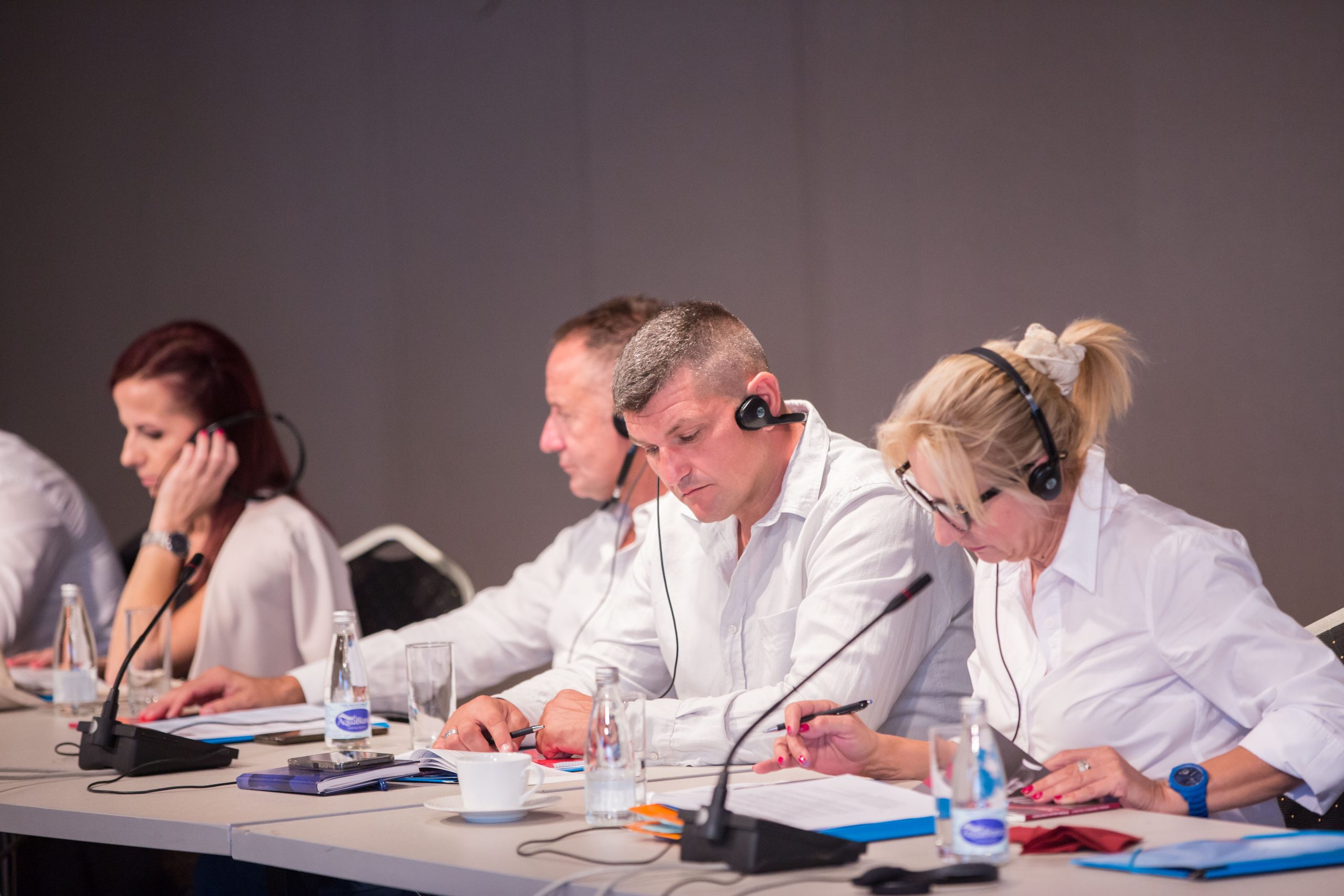
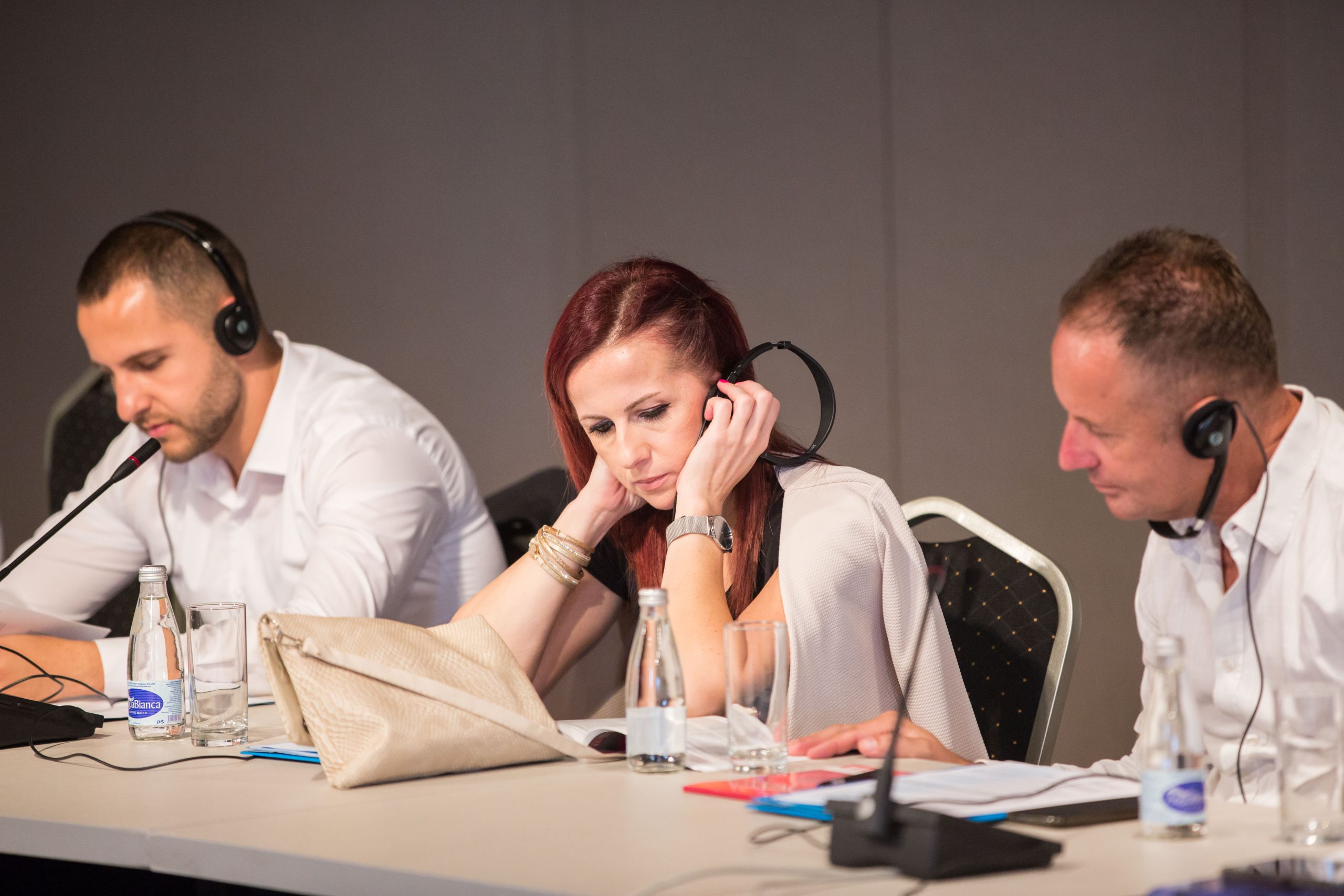
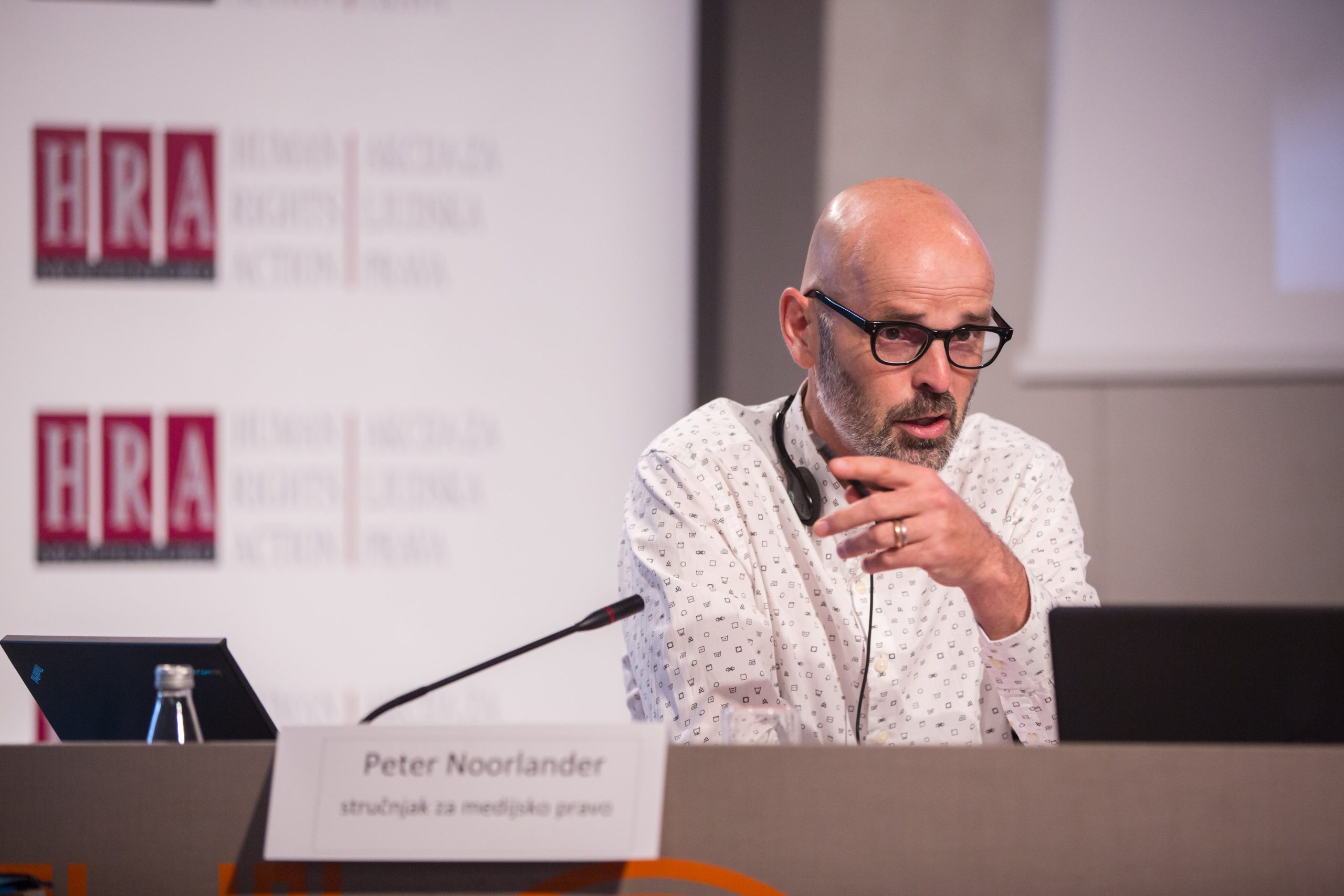
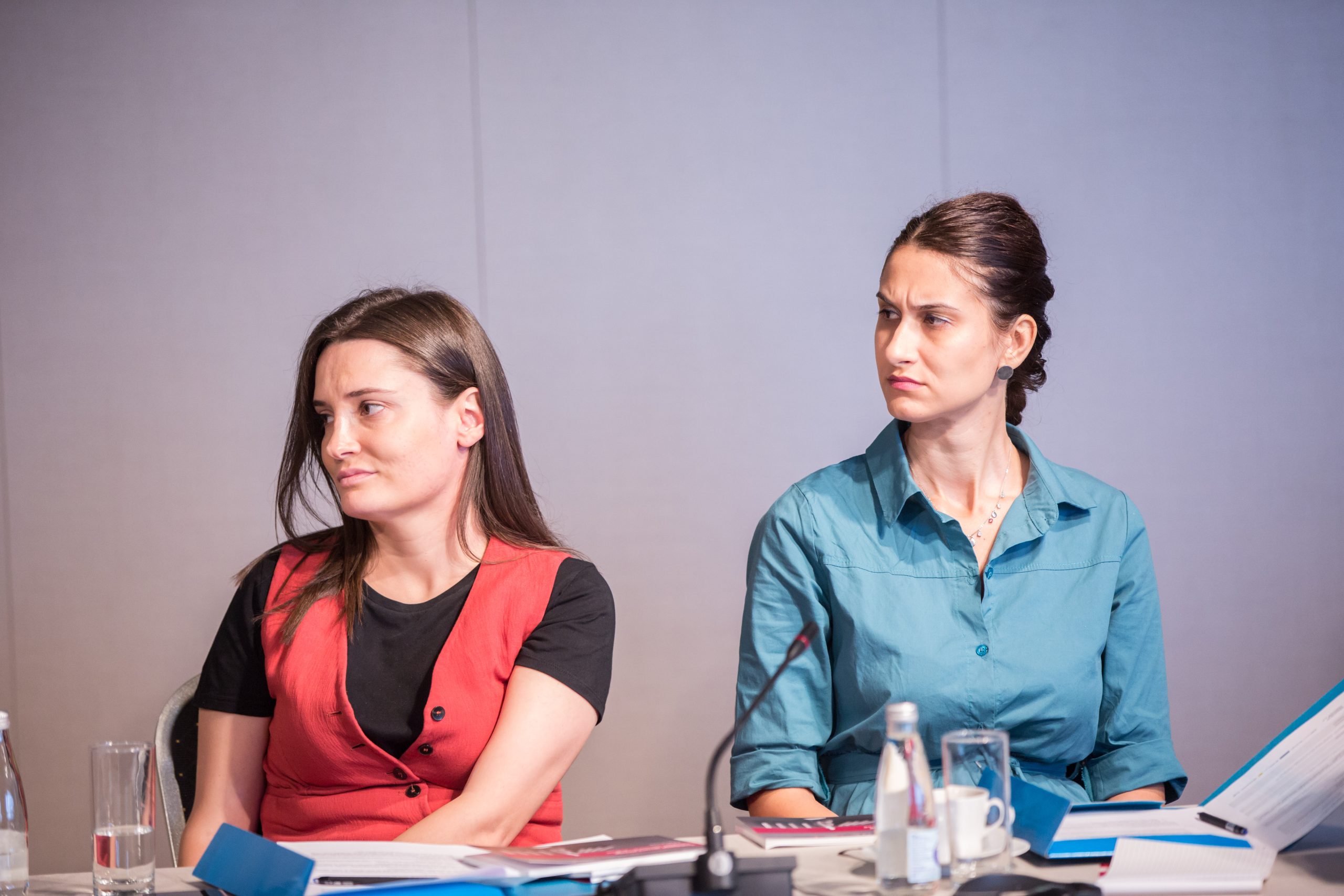
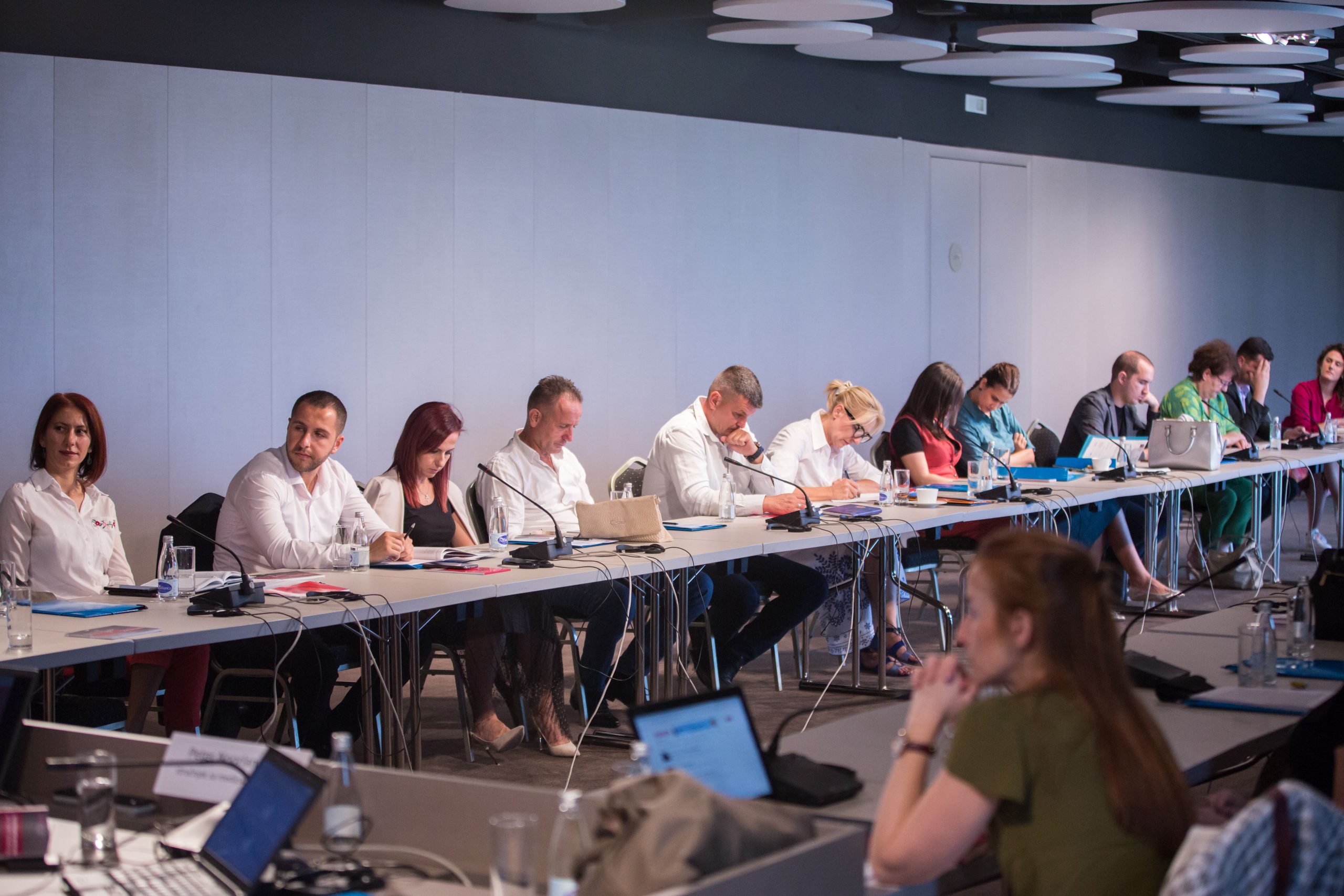
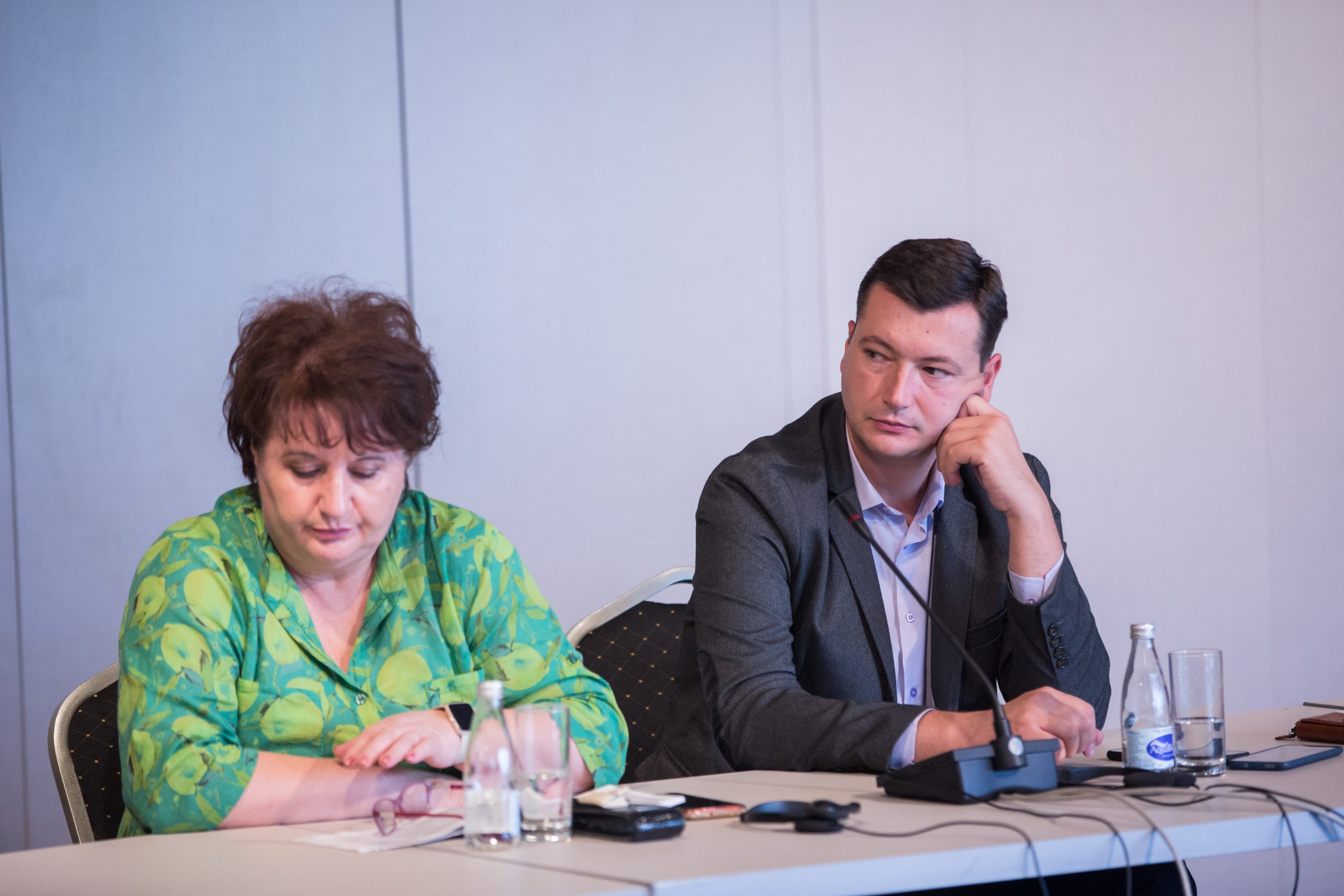
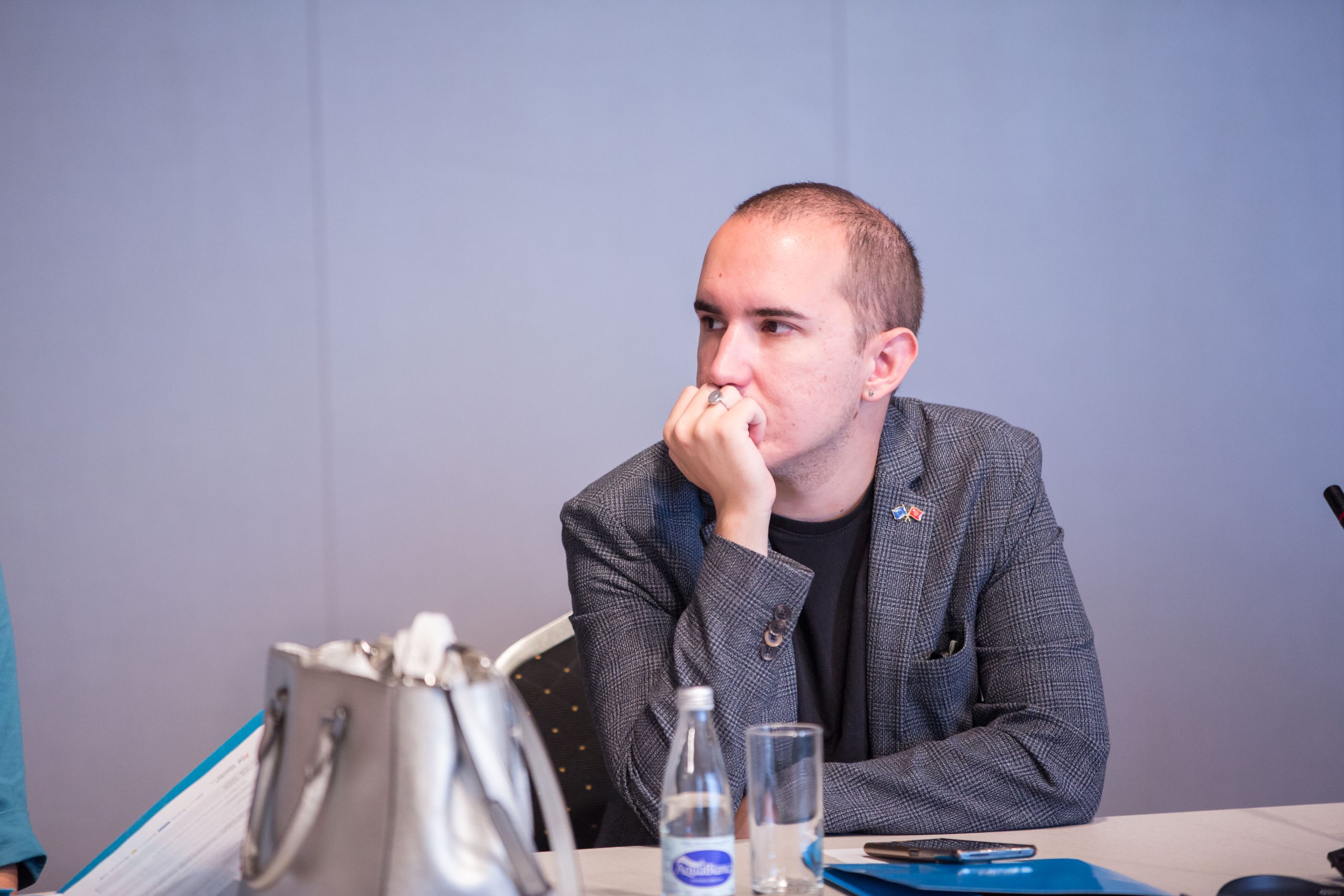
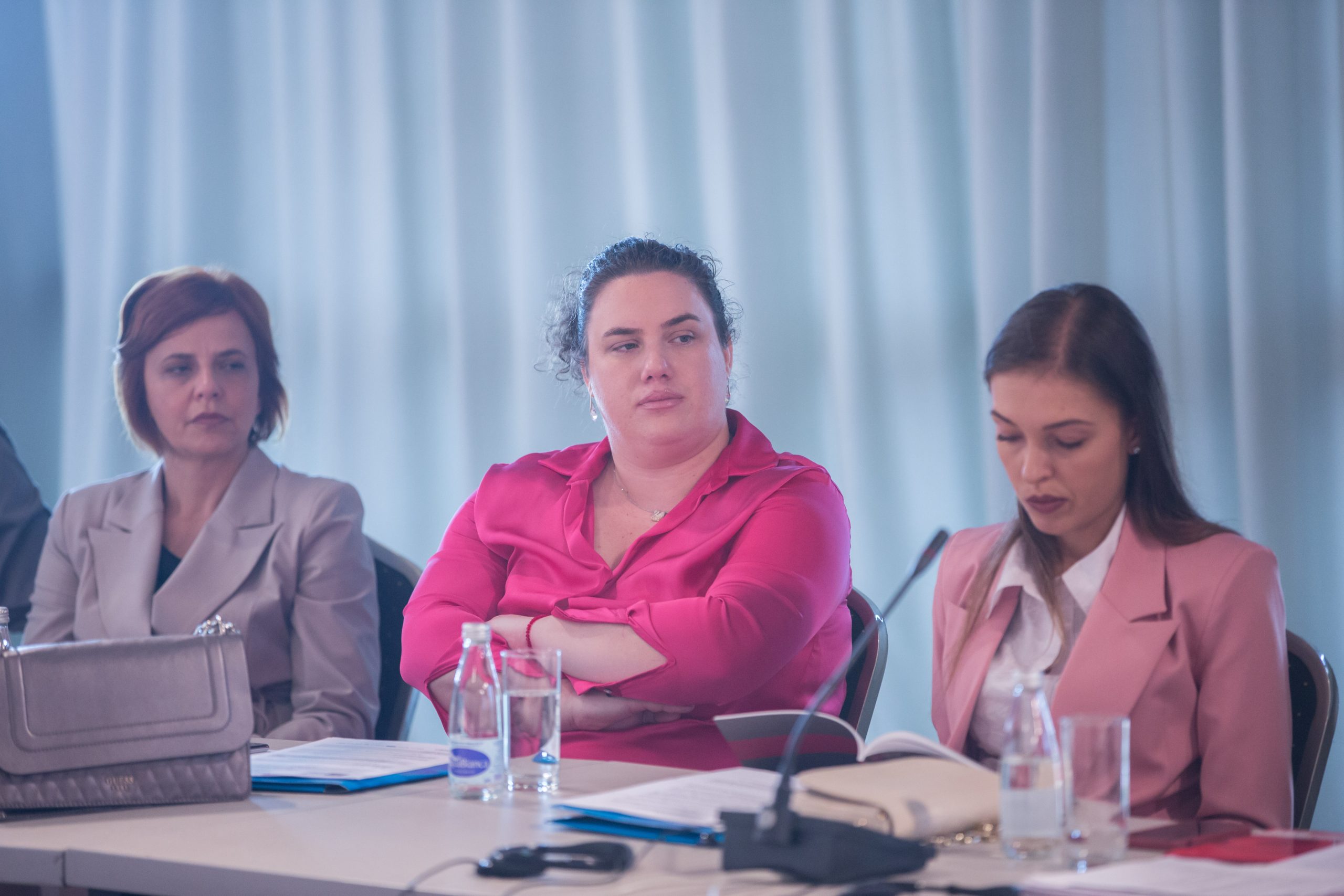
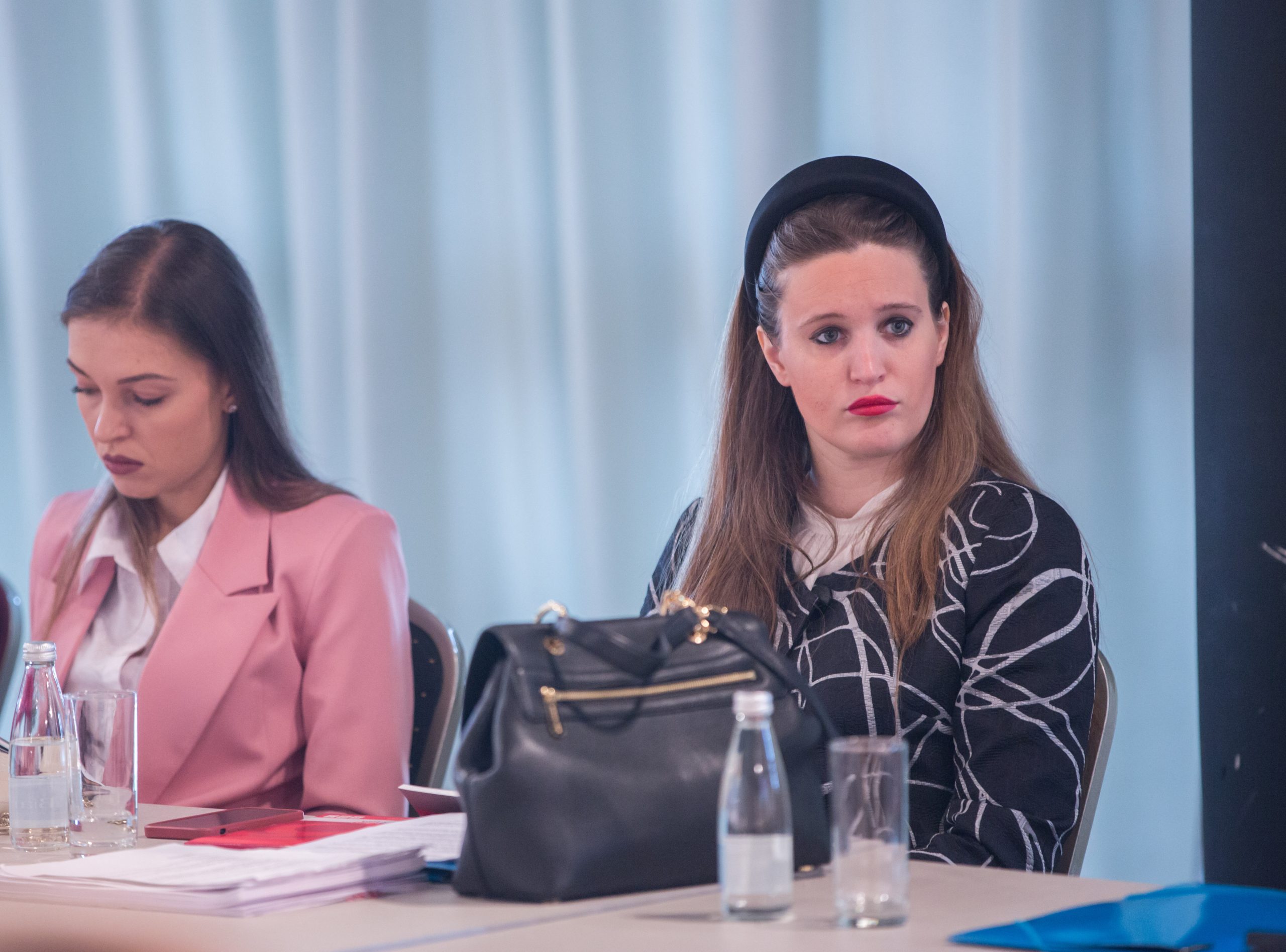
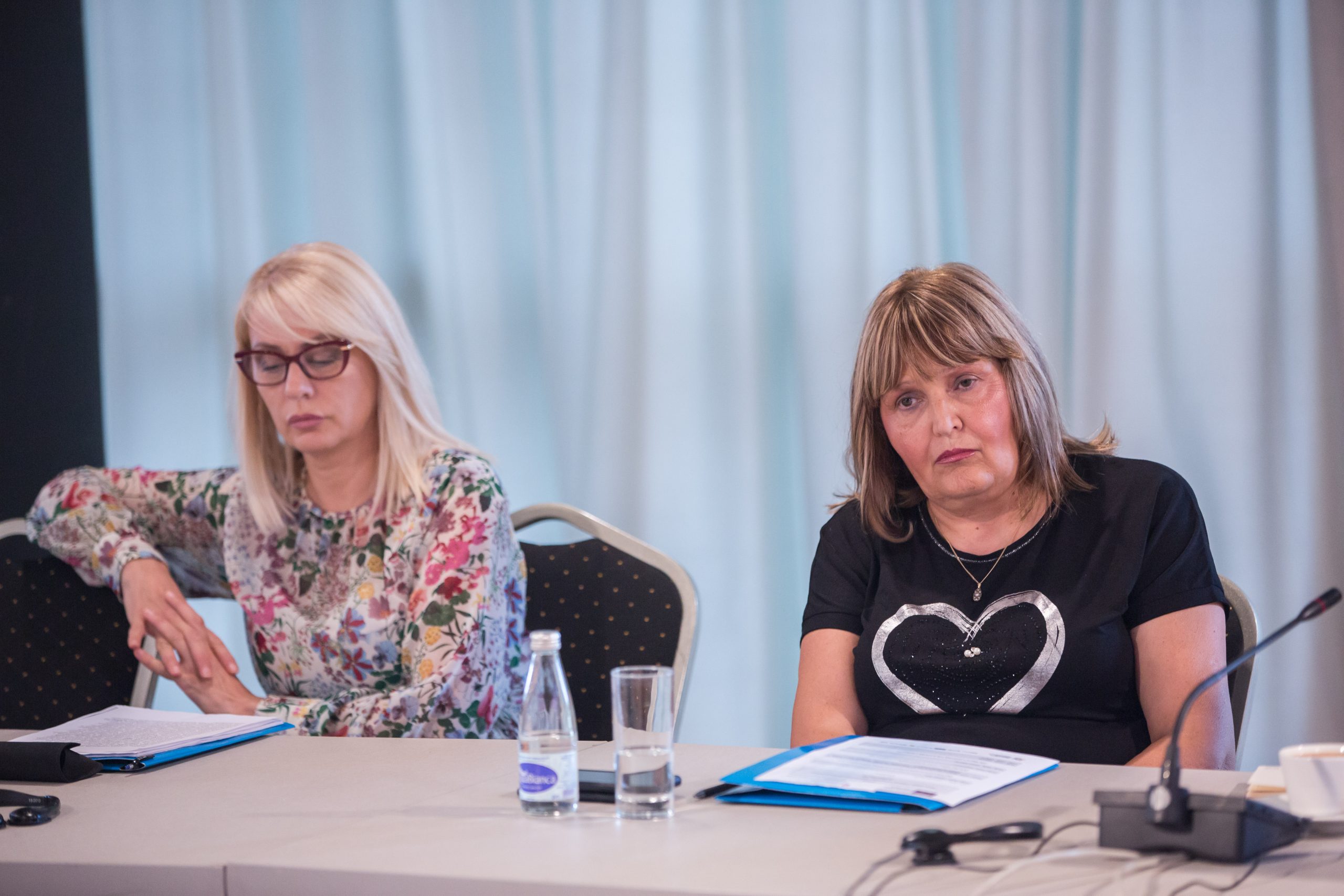
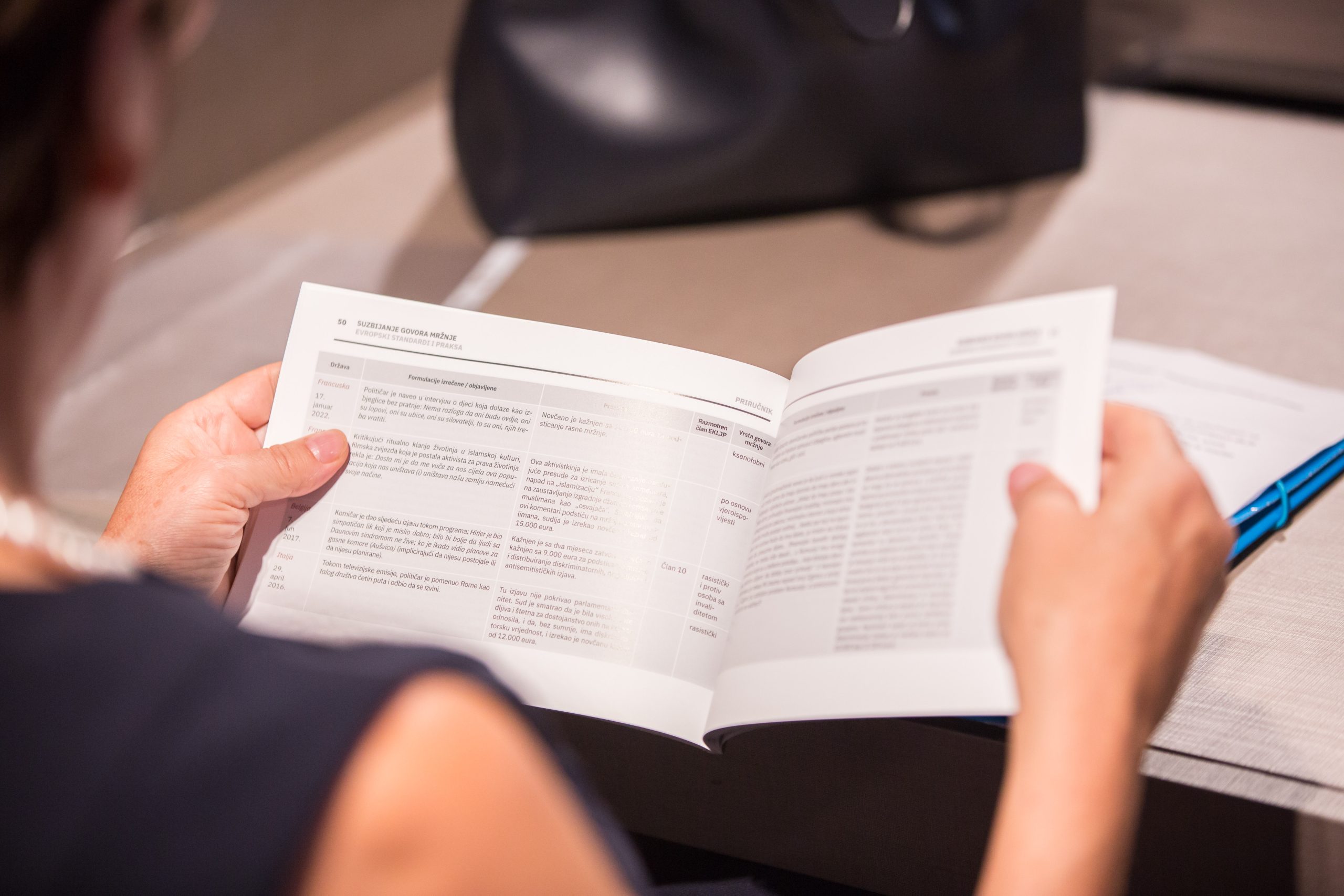
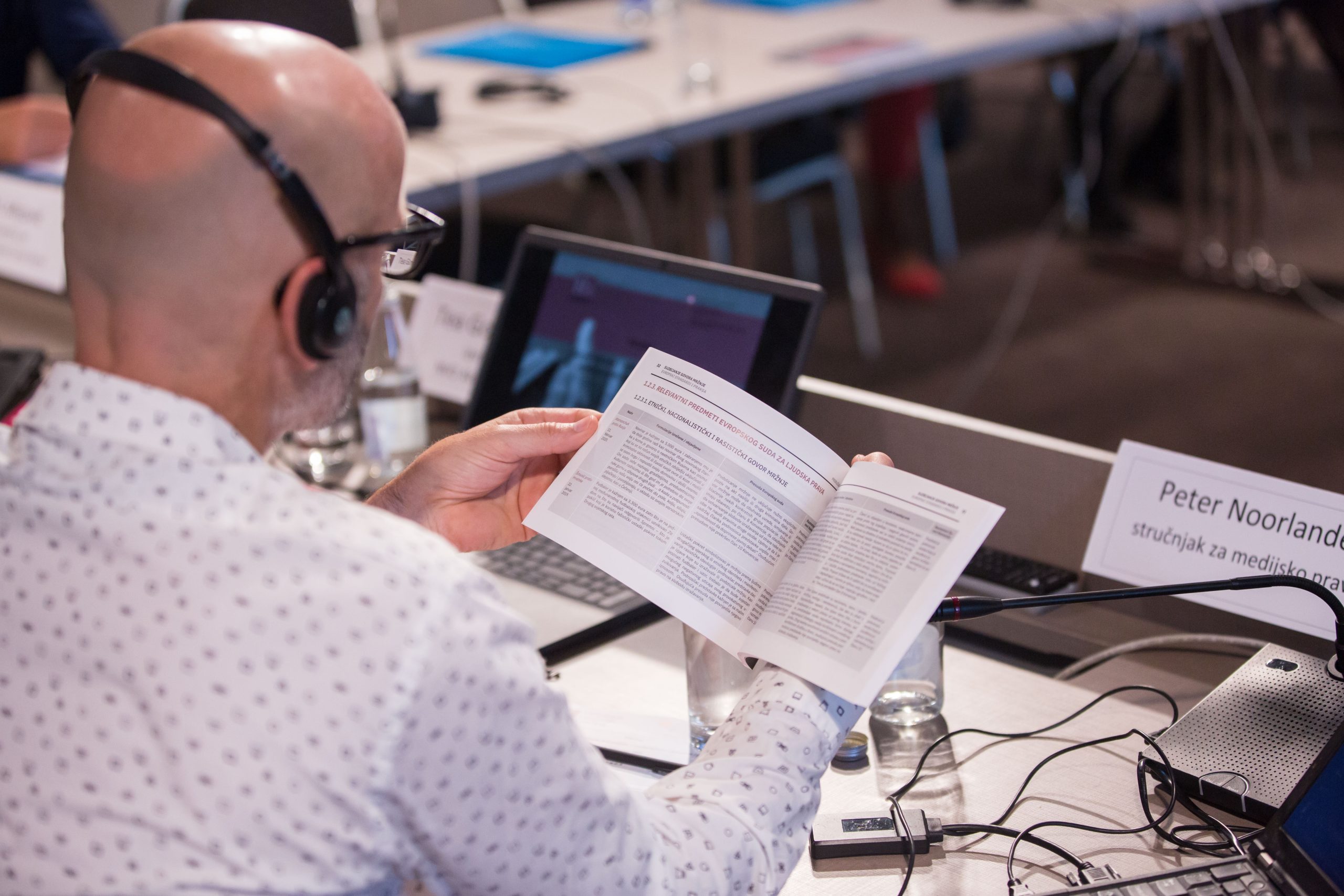

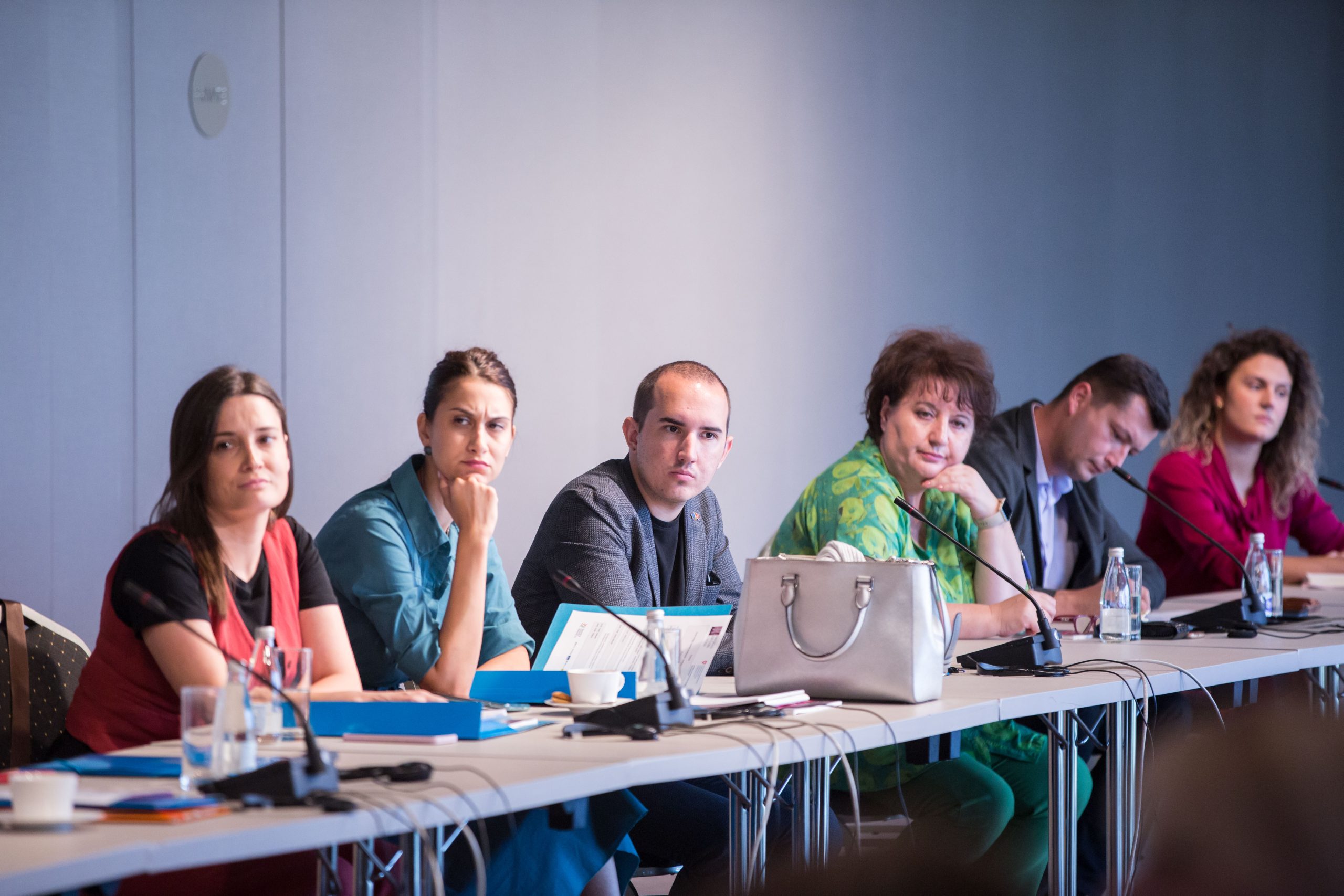
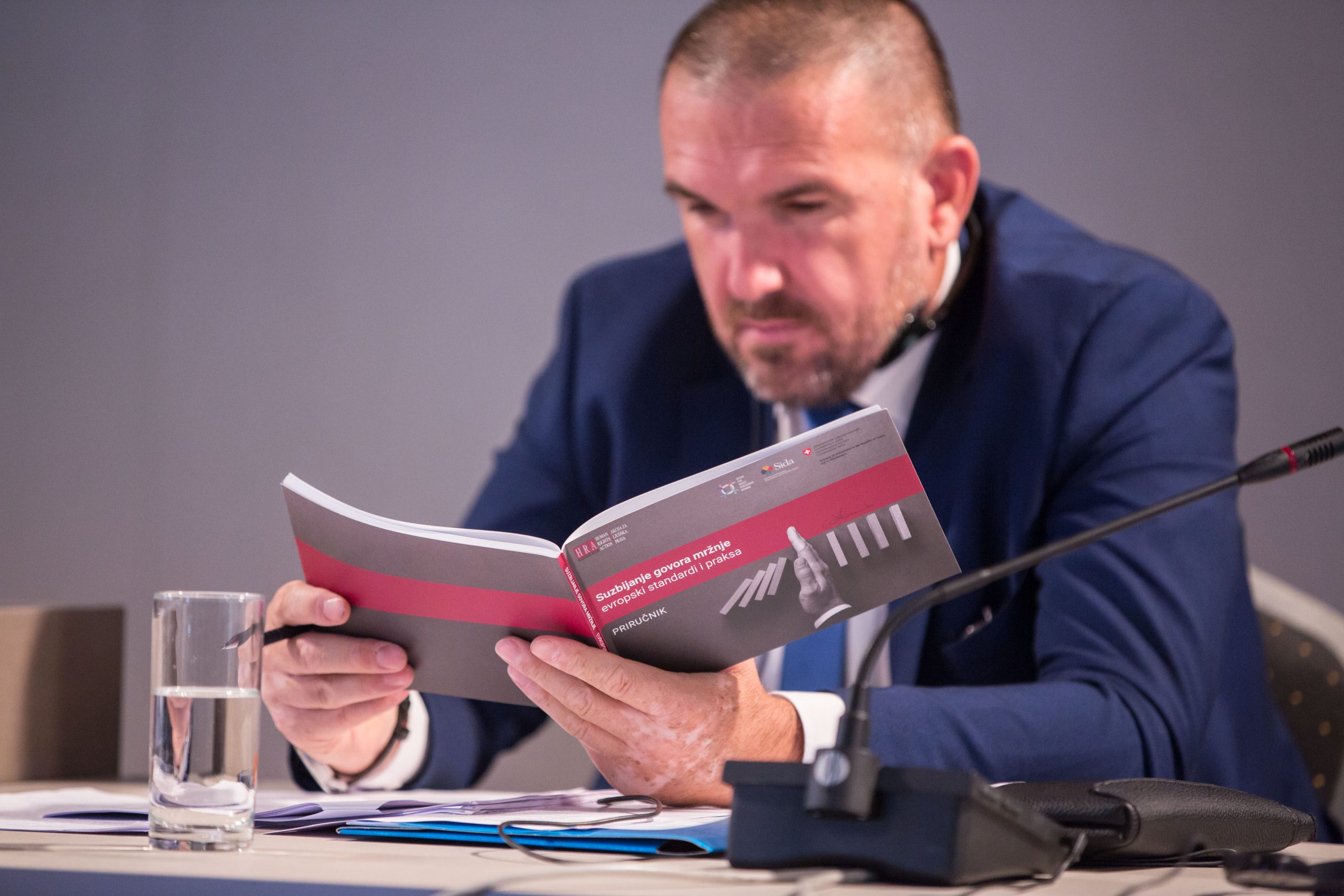
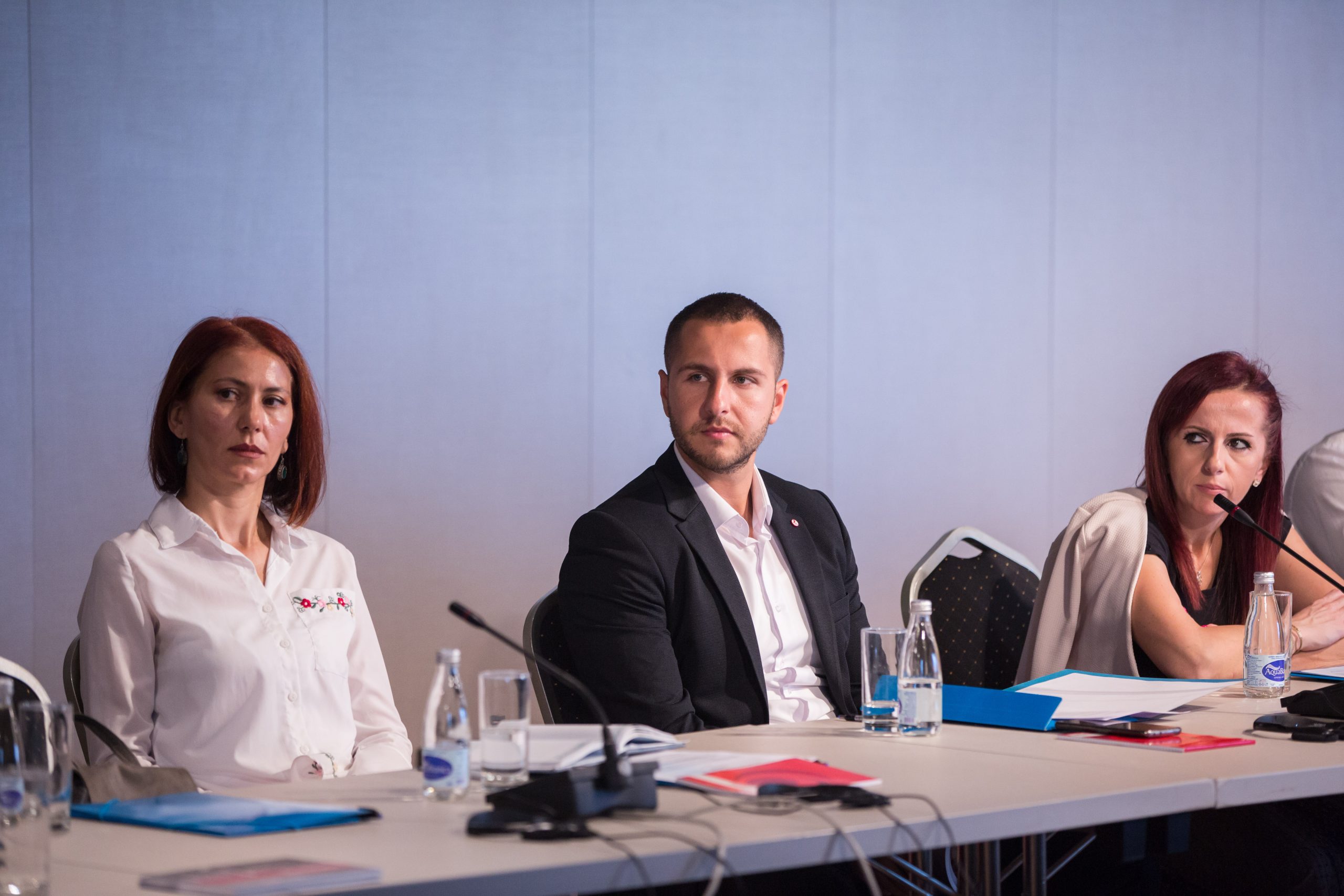




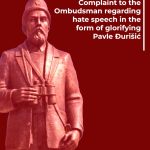
 English
English